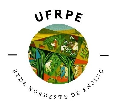Banca de QUALIFICAÇÃO: MILCA MARIA CAVALCANTI DE PAULA
Uma banca de QUALIFICAÇÃO de DOUTORADO foi cadastrada pelo programa.STUDENT : MILCA MARIA CAVALCANTI DE PAULA
DATE: 20/12/2023
TIME: 09:00
LOCAL: UFRPE
TITLE:
BECOME A MUSIC EDUCATOR IN THE ORFF - SCHULWERK APPROACH: EXPERIENCES TOLD FROM LIVED PRACTICES.
KEY WORDS:
Keywords: Teacher training, Carl Orff, narratives, phenomenology
PAGES: 90
BIG AREA: Ciências Humanas
AREA: Educação
SUBÁREA: Ensino-Aprendizagem
SPECIALTY: Métodos e Técnicas de Ensino
SUMMARY:
Summary:
The thesis project aims to develop theoretically and methodologically at the interface of music education and teacher training based on the pedagogical approach proposed by German music educator Carl Orff. Scientific and technological, as well as artistic, evolution follows its path in large steps and at a pace unprecedented in the history of humanity. Education does not remain outside these changes and transformations are incorporated into education, also coming from the area of knowledge of culture and art. To this end, this work seeks to investigate the thoughts of Carl Orff, musician, composer and musical pedagogue of the 20th century, seeking to understand the teacher who adopts this approach, seeing him as a living and active nucleus in the teaching/learning process, (Gainza , 2003). The work raises a basic guiding question: What do music educators say about their formative experiences in the Orff approach? Based on this inquiry, we seek to understand the applicability of the Orff approach through narratives and reports of the training experiences of teachers who choose this approach. The general objective of the investigation is to understand the process of becoming a music educator through a look at lived praxis and narrated experiences. Assuming greater specificity in the research, we have the following specific objectives: I. Briefly analyze the Orff-Schulwerk musical pedagogy - its foundations and philosophical principles. II. Analyze the formative life trajectory of teachers who use Orff pedagogy; III. Analyze the praxis of music teachers based on Orff pedagogy. The methodological design consists of analyzing the narratives of those involved, following phenomenological interviews. In the theoretical epistemological framework of the thesis, studies of the Orff-Schulwerk approach by Orff (1963) are articulated; Barrett, (2005); Larrosa, (1994); Cunha, (2013) among others. The thesis will be subdivided into five chapters. The first chapter investigates the musical and intellectual work of music educator Carl Orff, creator of Orff-Schulwerk (school work) which is based on a pedagogical tripod that unites the expressions language, music and movement. The second chapter intends to investigate the training of music teachers in Brazil and, subsequently, analyze how an Orff music educator is constituted. The third chapter seeks to address narratives as a pedagogical alternative for carrying out research, listening carefully to the narratives of teachers selected to participate in the research. It is believed that it is necessary to understand how to learn in order to learn how to teach Orff pedagogy. Chapter four outlines the methodological path of the study, outlining all the steps to be followed in the investigation. In chapter five, records of data collection will be made, and considerations of the work, which does not intend to “finalize”, but rather to reflect on the theme of training music educators who adopt the Orff approach, nowadays.
COMMITTEE MEMBERS:
Presidente - GILVANEIDE FERREIRA DE OLIVEIRA




